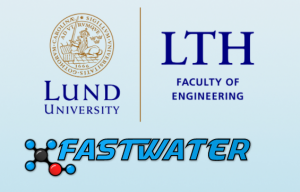Methanol Could be a Climate Neutral Option for Shipping
To succeed, we must find a way to convert engines in a simple and cost-effective way. We are currently developing engines for this, and in 2022 we expect to have test ships in operation”
LUND, SWEDEN, October 28, 2020 /EINPresswire.com/ -- On November 5, a webinar on the theme Methanol: a sustainable, scalable, storable energy carrier will be held. Participation is free and among other things, researchers and industry representatives will discuss various angles on methanol as a fuel. — Sebastian Verhelst
REGISTER for the webinar.
Large ships often run on heavy fuel oil, something that leads to pollution and considerable greenhouse gas emissions. However, one promising alternative is building or converting engines to run on methanol instead. The FASTWATER project led by Lund University in Sweden has received EUR 5 million from the EU to develop the new technology. In 2022, a pilot boat and harbor tug is expected to be launched.
The Paris Agreement and agreements within the IMO (International Maritime Organization), state that carbon dioxide emissions from shipping must be reduced by 50 percent by 2050. This is a major commitment, as shipping is a large industry and accounts for substantial emissions of both carbon dioxide and other substances. “International shipping emits as much nitrogen oxides, or NOx, as the entire EU's NOx emissions combined”, says Sebastian Verhelst, associate professor at the Division of Combustion Engines at Lund University and coordinator for FASTWATER.
Together with his colleagues he is developing a technology that makes it possible to use methanol as fuel instead, something that is significantly cleaner and can be produced from renewables. To scale this up and get more interest from the industry, there are a number of challenges.
The three major problems that FASTWATER aims to solve are:
1. Today's engines cannot run on methanol, so either new engines or technology that converts existing engines is required
2. There must be a reliable global fuel supply chain
3. There are many rules and regulations that need to be reviewed
Methanol is burned at low temperatures and does not form soot. In the short term, the fuel choice can therefore have major effects on emissions of particles, nitrogen oxides and other pollutants. In the slightly longer term, it can be produced as a climate-neutral, synthetic fuel, for example using residual products from the forest industry. Another method could be to capture carbon dioxide from the atmosphere, or emissions from factories, and use hydrogen to create methanol, obtaining a so-called electrofuel.
When it comes to emissions of harmful substances from methanol, they are negligible, making it more environmentally friendly than diesel. Methanol is also rapidly biodegradable and much less of a problem should it be released at sea.
“A big advantage is that methanol is already available in large quantities in most ports. There is already a supply chain system that can be developed, as methanol is one of the world's most transported chemicals. It is also a liquid fuel, which means that it is easy to distribute and store on board, unlike, for example, gas or electricity”, says Sebastian Verhelst.
When it comes to cars, ethanol is often brought up as an option. But for ships, methanol is better suited because it is both more efficient and less complicated to produce.
The concept of using methanol for ship engines is not new. There have been various projects, including the ferry Stena Germanica, on the Gothenburg-Kiel route, that have used methanol. So far, only very large two-stroke engines for methanol are commercially available, but FASTWATER is now developing a range of four-stroke engines that will be available on a larger scale.
More importantly, there is a need to convert existing engines for methanol use, a technology that is currently under development.
“Large vessels involve large investments and they are often used for many years. The average lifespan is over 20 years, so it would take far too long to wait for the fleet to be replaced. To succeed, we must find a way to convert engines in a simple and cost-effective way. We are currently developing engines for this, and in 2022 we expect to have test ships in operation”, says Sebastian Verhelst.
The rules must also be reviewed, Sebastian Verhelst emphasizes. Today's regulations were written with liquefied natural gas (LNG) in mind. This fuel has completely different properties than methanol, making it more difficult for a ship to be cleared for methanol use.
Read more about the Fastwater project HERE.
Christian Norden
BALance Technology Consulting GmbH
+49 421 3351715
christian.norden@bal.eu
Legal Disclaimer:
EIN Presswire provides this news content "as is" without warranty of any kind. We do not accept any responsibility or liability for the accuracy, content, images, videos, licenses, completeness, legality, or reliability of the information contained in this article. If you have any complaints or copyright issues related to this article, kindly contact the author above.

